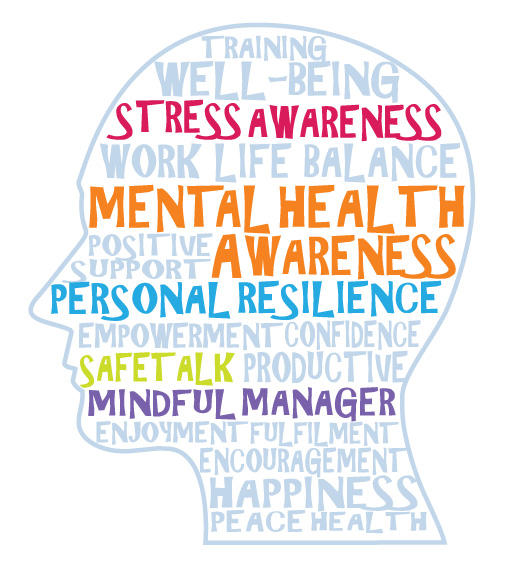Mental health first aid for managers

Mental health issues are becoming much more prevalent with one in four people experiencing a mental health issue in any given year. Managers are finding themselves having to deal with more and more complex mental health issues in the workplace and for many of them they have not had adequate training in dealing with this.
Mental Health Awareness is growing within organisations with many companies making changes like offering gym membership or resilience training. However, according to Time to Change research, 49% of respondents said they would feel uncomfortable talking to their employer about their mental health* and in CV-Library’s recent research of 1,200 workers, 38.4% of respondents said that they were unsure whether their managers would help them if needed**. So how do we change this; how do we assist managers with interacting with their employees so employees feel confident in discussing their mental health concerns?
Line Managers are not expected to be medical experts so in this article we wanted to give you an insight into some of the things that can trigger mental health issues. The most important thing to understand is that anyone can develop mental health issues at any time in their life, just as they can a physical illness. Mental illness is no respecter of background, ethnicity, status or circumstances. It can be triggered by a variety of things, which we call ‘stressors’. It can also be triggered by happy events, such as getting married, having a baby, or getting promotion at work. Some common stressors are derived from lifestyle changes which include: moving house, bereavement, relationship issues at home or at work, health scares, trauma, redundancy, divorce, changing job, changes within the workplace, increased workload or working with a new team. Abuse in childhood and substance abuse can also cause mental health issues.
Mental ill-health affects people in different ways. For some people the effects are short term, for others they fluctuate and affect them from time to time, and for some they are ongoing. Treatment can include medication, talking therapy, self-help such as changes in diet and exercise, or practical support.
People can experience symptoms of distress, such as increase or loss of appetite, changes in sleeping patterns, irritability, poor concentration levels, increase alcohol consumption, without having a diagnosed mental health condition. The difference is to do with the severity and duration of the symptoms, or the impact they have on activities of daily living.
Usually a GP will be involved in diagnosing conditions and prescribing appropriate treatment, but a clinical diagnosis does not dictate what a person can and cannot do. Some people with severe symptoms still manage to work, while others struggle to leave the house. One size does not fit all, which is where occupational health can play a part as they can assess the person, look at the treatment that is being prescribed and advise on the employee’s capabilities. For many people being at work is good for them. This is one of the things that makes dealing with mental health in the workplace quite complex as every person will be different and will deal with their condition and respond to their treatment differently.
In next month’s article, we will highlight some steps you can take to manage mental health within your workplace:
- Promoting wellbeing
- Recruitment and promotion
- Identifying the early warning signs and talking at an early stage
- Keeping in touch during sickness absence
- Returning to work and reasonable adjustments
- Promoting a culture of support
If you have any employees who currently have mental health issues, we can assist by conducting a face to face or telephone consultation and providing you with the advice that will allow you to effectively support the employee during their illness. For more information please contact us.
* Time to Change: ‘Attitudes to Mental Illness 2013 Research Report’
www.time-to-change.org.uk/sites/default/files/121168_Attitudes_to_mental_illness_2013_report.pdf
** CV-Library’s recent research: ‘Work a key factor in depression and anxiety’.
www.hrmagazine.co.uk/article-details/work-a-key-factor-in-depression-and-anxiety/357676/
Contact Details
For more information about how Lincoln Occupational Health can help you and your employees, please contact us on enquiries@lincolnoccupationalhealth.co.uk or
0844 481 0093 where our team will be happy to help.